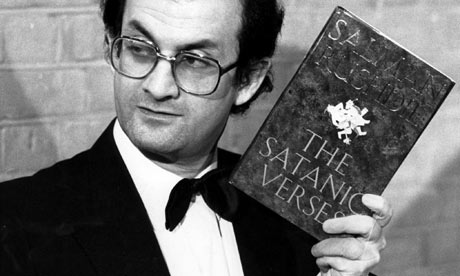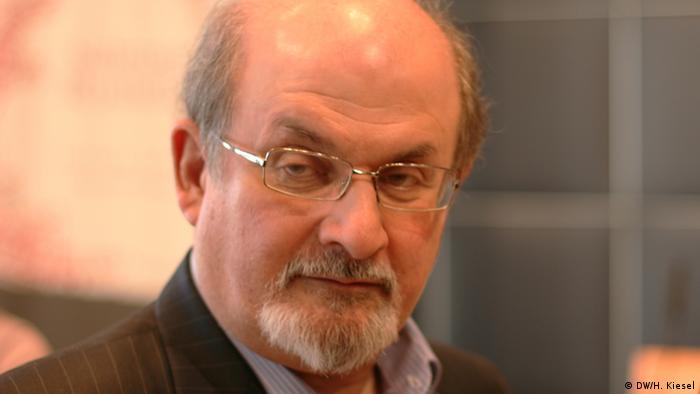Check out what the ”scholar for religious history” Dwayne Ryan Menezes (simpleton) has to say. While he condemns the fatwa as a violation of the universal declaration of human rights, he is nonethless confused as to why such a nation with such historical richness would do so:
“However,” Menezes adds, “the ability to tolerate dissent and allow for freedom of expression testify to the strength and maturity of civilisations. Hence, it confounds me as to why the very same people behind some of the richest civilisations are not also the leading advocates of tolerance in the world today.”
It’s Islam pal, that’s the reason for the lack of tolerance towards anything not Islamic, and especially towards those who are deemed to have insulted it, including the Tundra Tabloids and the rest of us who defend Western values and warn about Islamization.
Read also: The Salman Rushdie Affair by Dr. Daniel Pipes

Salman Rushdie: “If you feel offended by something, it’s your problem,” [..] “To be offended by a book is quite difficult; you have to work very hard at it. When you close the book, it loses its power to offend you.”
The Rushdie fatwa: 25 years on
25 years after the Iranian fatwa, author Salman Rushdie is still hated by many Muslims but he is not being hunted down as aggressively as before. What remains unchanged is the challenge to the freedom of expression.
On February 14, 1989, Iran’s former religious leader Ayatollah Khomeini issued a religious edict calling for the death of British-Indian novelist, Salman Rushdie, for writing the controversial novel,The Satanic Verses, which many Muslims regarded as demeaning their Prophet Muhammad. The term “Satanic Verses” refers to a set of alleged Koranic revelations that allowed prayers to be made to three pagan Meccan goddesses.
The book sparked violence around the world and was banned in several countries including India, Bangladesh, Indonesia, and Pakistan. Those associated with the publication and translation of The Satanic Verses were attacked. Rushdie’s personal freedom was severely limited for 13 years and he was forced to live under police protection.
“When he was first accused of being offensive, he was genuinely perplexed. He thought he had made an artistic engagement with the phenomenon of revelation; an engagement from the point of view of an unbeliever, certainly, but a proper one nonetheless. How could that be thought offensive?” Rushdie writes in third person in his memoir Joseph Anton about the fatwa, which he believed was “baseless”.

